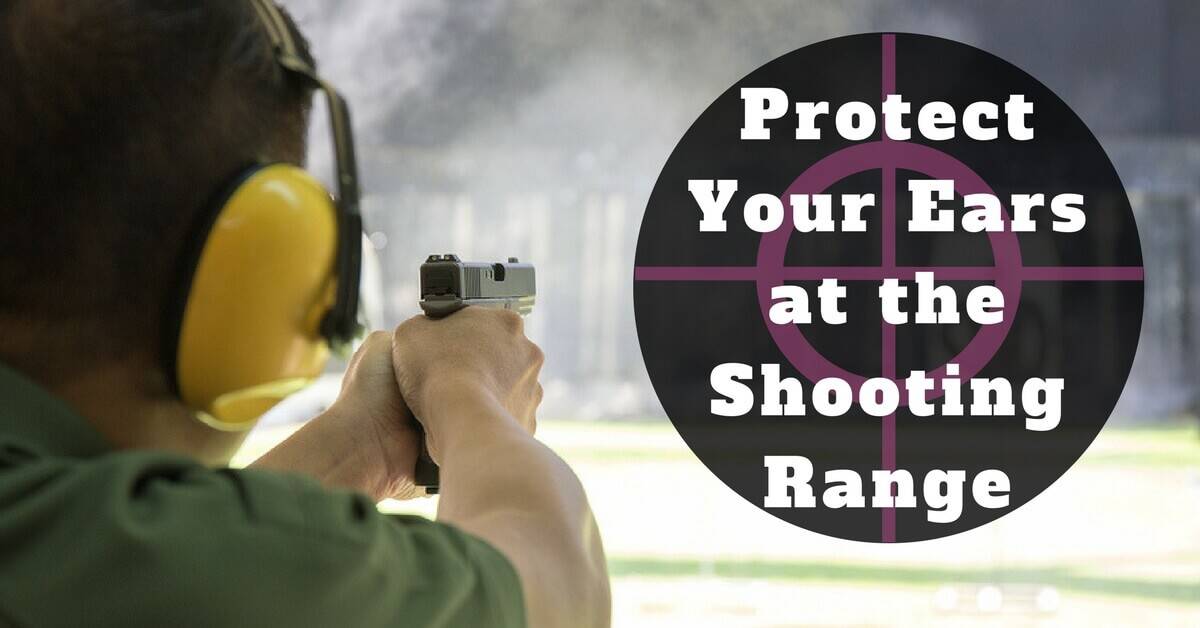We all know that loud noise has the potential to damage our hearing, but the immediate impact loud sounds have on our hearing may surprise you. Music volume at a large rock concert may begin to cause permanent hearing damage after just 5 minutes of full exposure. The blast of an ambulance siren can cause permanent hearing loss in under a minute.
Some of the most harmful sounds we come in contact with happen quickly- the explosions of fireworks and gunshots- yet if your hearing isn’t protected around these bursts of noise, they cause immediate and irreversible damage to your hearing. Similarly, gunshots ring out an explosive sound in the range of 140-165 decibels, while any noise greater than 130 decibels causes immediate hearing damage.
Shooting Exposure
Noise induced hearing loss can happen quickly, and preventative measures still lag behind. A recent study showed that over 40 percent of gun users fail at using consistent hearing protection. Of people surveyed who shot 10,000 or more ammunition rounds per year, a startling one in five people never protected their ears while shooting.
Unprotected ears suffer immediate damage to the hair cells of the inner ear any damage to the hair cells represents some hearing loss and extensive harm causes significant and premature losses in hearing. Shooting without proper protection can leave the shooter with tinnitus, a lingering ringing condition in the ears. Additionally, gun users may experience accelerated hearing loss in the ear closest to their firearm, which may receive a significantly higher exposure to dangerous noise.
Changing the casual attitude towards hearing protection may prove difficult- the study, “The Epidemiology of Firearm and Other Noise Exposures in the United States” found that most shooting was done recreationally. With 20% of gun users in the U.S. never utilizing hearing protection, it is clear making hearing protection a non-negotiable part of gun safety should be a health priority.
Hearing Protection at a Shooting Range
Hearing protection is a must if you are visiting a shooting range. When choosing hearing protection always look for the Noise Reduction Rating (NRR) of the item. The rating is designed to tell you how many decibels will be muffled from your sound exposure. You can find consumer earplugs and earmuffs that are rated for up to 33 dB of sound and the more protection the better. With firearms producing sound spikes regularly over 130 dB, choose the highest NRR rating on the protection available to you.
Earplugs and ear muffs can be combined but their hearing protection is not cumulative. When used in combination, it adds about 5 dB of hearing protection for your ears. This means if you use 27 NRR earplugs with 33 NRR earmuffs, the net result is 38 dB of hearing protection, that is 5 dB of protection added to the larger NRR rating. Even 5 dB of protection is significant when preventing hearing loss from the dangerous bursts of sound gunfire exposes the ear to.
Hearing Protection While Hunting
While hunting involves less noise than shooting at a range, the need for hearing protection is still present. Hunting poses additional concerns however – as regular hearing is used to help track game and muffled hearing can lessen one’s ability to communicate with fellow hunters and make you unaware of noises you are making that may startle deer and other quarry. Hunters can use molded earplugs or passive ear muffs to protect their ears. These means of protection usually mean the hunter sets up a shot beforehand and dons hearing protection before firing at the game.
Frequent hunters may want to make use of electronic earmuffs which allow non-harmful sounds to be heard, while stifling harmful noise. Electronic earmuffs are more expensive than other forms of hearing protection, but the selective filtering of noise they offer is the most adaptive to hunting conditions.
Desert Valley Audiology
If you have concerns about your noise exposure or questions about hearing protection, contact us today at Desert Valley Audiology. We’re committed to helping people hear their best and providing the best in audiology testing and treatment. If you’ve noticed changes in the way you hear, or want to know more about the best ways to protect your hearing from harmful noise, we are happy to help you.

